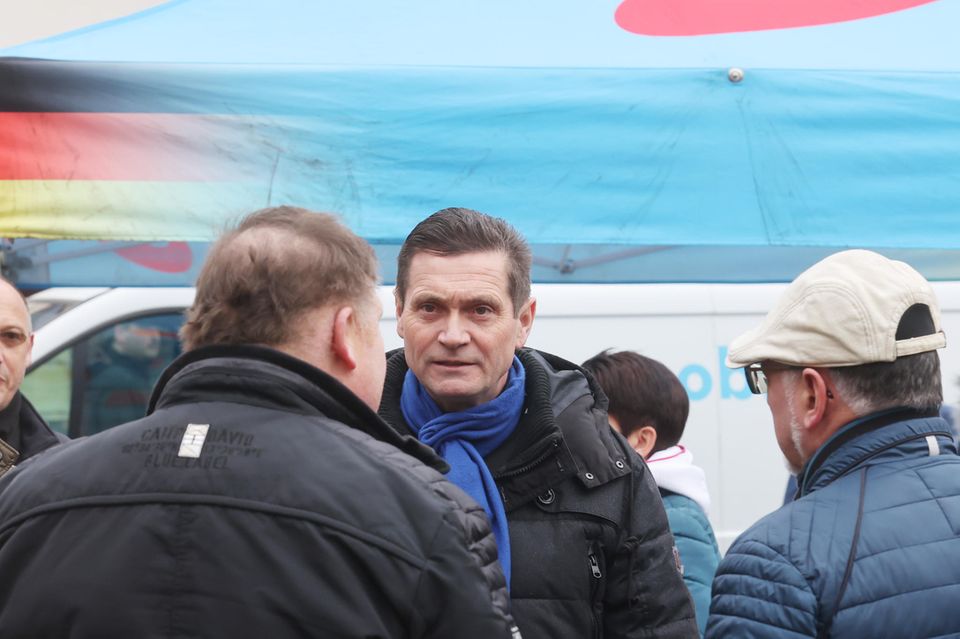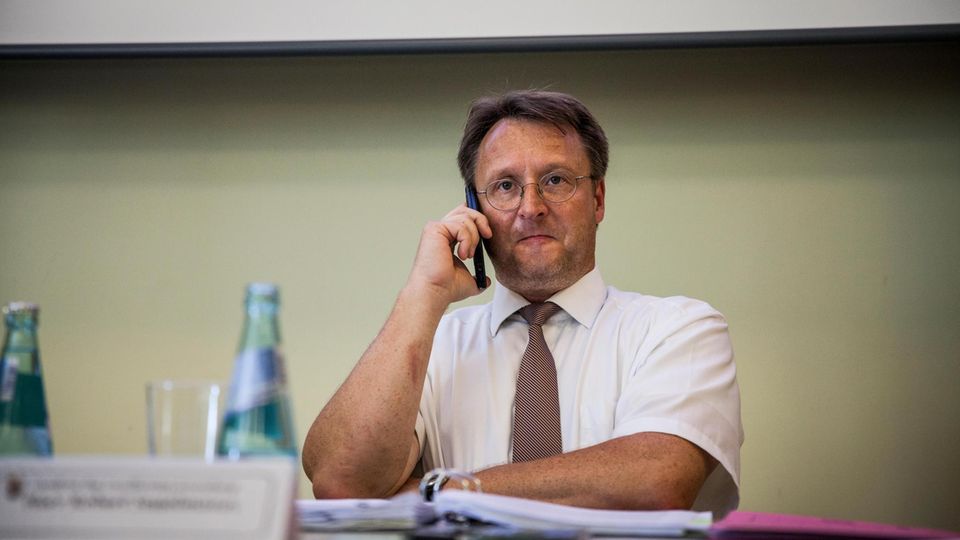Opinion
District election in Thuringia
No second Sonneberg! And the AfD can still lose
Election winner Christian Herrgott, CDU. The new district administrator of the Saale-Orla district won with 52.4 percent.
© Bodo Schackow/ / Picture Alliance
They had been awaited with excitement and fear: But in the district elections in the Saale-Orla district, the CDU candidate surprisingly beat his AfD competitor. There is a lesson to be learned from this.
Big surprise in Thuringia: Although on Sunday it looked like it would for a long time AfD candidate Uwe Thrum, 49, new district administrator in the Saale-Orla district, was beaten out of the field by 39-year-old CDU man Christian Herrgott in the runoff election. With 52.4 percent, the elected boss in the district will in future be called Father in Heaven. A defeat for the party that harbors fantasies of omnipotence.

Election loser Uwe Thrum, AfD, during the election campaign. In the end he had to admit defeat in the runoff election.
© Bodo Schackow/ / Picture Alliance
The current problems have therefore by no means disappeared. But the result is still a relieving signal for Democrats. Of all places, in the state of the fascist AfD state leader Björn Höcke, who would like to become the first AfD prime minister in the state elections in September, the right does not manage to win the second important district mandate. Six months ago, in the neighboring Thuringian district of Sonneberg, she managed to get Höcke’s disciple Robert Sesselmann elected as district administrator. He has just proven once again what he is about Democracy lasts. He tried to get 35,000 euros in funding for the “Living Democracy!” program. to cancel, which co-finances youth trips to the Buchenwald Concentration Camp Memorial. After massive resistance, he had to back down.
It has not yet been conclusively clarified empirically why Thrum, who looked like the sure winner for a long time, ultimately lost to Herrgott in the Saale-Orla district. However, there is much to suggest that some of the approximately 66,000 eligible voters have once again pondered in view of the nationwide mass protests against the AfD: Should we really build our future at home on the twisted beliefs of right-wing radicals? This is how Erfurt political scientist André Brodocz, among others, sees it. More people may also have voted because they were mobilized to do so by the protest marches. If this is the case, protesting in democracies helps twice as much.
On the weekend when the decision was made in favor of Herrgott, over 800,000 people were on German roads again. In Thuringia, too, thousands rebelled against the right, from Eisenach to Gera. Families, clubs, churches, school classes and many other groups openly showed their faces to advocate for a not always easy but wonderful world of freedom and diversity. They want to contradict the dark, misanthropic discontent of the right, which is already thinking about deportations. The peaceful, colorful demonstrations provide convincing images of a functioning popular rule, as Winston Churchill already envisioned. He said: “When my doorbell rings at six in the morning and I can be sure it is the milkman, then I know I live in a democracy.”
Unfortunately, the protests and the district elections do not yet provide any indication that the AfD is now permanently losing strength in Thuringia or elsewhere. The majority for Herrgott – just 2,170 votes – was extremely narrow, especially since the SPD and the Left had explicitly called on the district’s residents to vote for the CDU in the runoff. If the percentage points for the AfD in surveys are still melting, it is because some of its voters are defecting to other populist parties that are trying to do so without brown demagoguery. For example, Sahra Wagenknecht’s new alliance, the BSW.
Now the traffic light is in demand
“Democracy is government of the people, by the people and for the people,” is how former American President Abraham Lincoln defined it. In order to make the principle clear to yourself and others, it is important and right not to let the demonstrations for freedom and diversity die down. Ideally, they should last throughout the entire election year.
But it is also important that the traffic light coalition finally introduces a policy that proves that the fight for democratic values is worth it. We need the solidarity of the masses as well as the convincing power of the representatives of our democracy so that Germans as a society can return to a mentality in which right-wing and left-wing radical parties can no longer be more than fringe phenomena.



